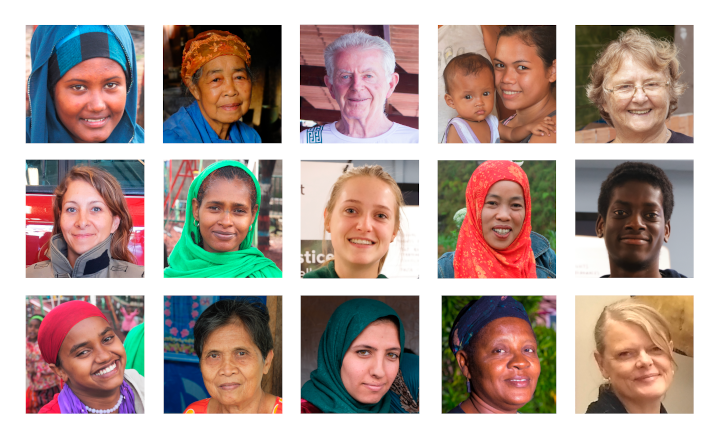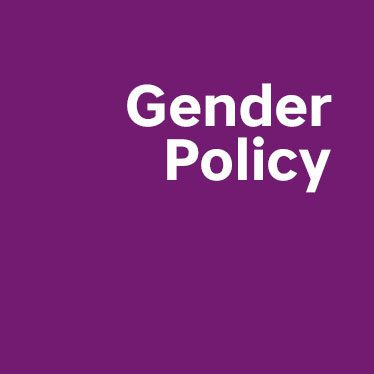

Just in time for International Women’s Day 2020, Development and Peace — Caritas Canada is thrilled to launch its renewed gender policy and action plan, recently developed through a participative process that engaged staff, partners in the Global South and members across Canada and adopted by Development and Peace’s National Council at its November 2019 meeting. This renewed policy builds on the organization’s pioneering Gender and Development policy that was introduced in 1993 to further the recognition of women’s rights as human rights and emphasize the significant role that women can play as agents of change in their communities, social movements and countries.
The policy renewal began with a participatory gender audit that examined our internal practices; our documentation; our education and public engagement work in Canada; and our work with partners in the Global South. This audit highlighted areas of strength where Development and Peace has shown leadership, as well as areas for growth. The goal of the policy and action plan is to ensure that women in Canada and the Global South can assume full agency in building a more just and sustainable world for everyone, including men and boys.
The principles of the Catholic Church’s social teaching are central to this policy, focusing on integral human development that encompasses the well-being of every person in all their dimensions: economic, political, social, ecological and spiritual. We integrate gender equality into all our humanitarian and development projects, because we have learnt that this is the most effective way to address the root causes of poverty. Much like the Feminist International Assistance Policy of the Canadian government, we aim for active and meaningful participation by women and girls in all initiatives because truly inclusive and democratic development are only attained when women participate fully in all spheres of life and decision-making.
Justice for women is one of the four themes of Development and Peace’s 2016-2021 strategic plan. It recognizes that inequalities between men and women stem from deep-rooted problems in our power relationships, whose transformation requires a new approach. Women’s contribution to our humanitarian and development work is visible in Development and Peace’s education and action campaigns, including May Peace be with Her and Women at the Heart of Change.
Since Development and Peace was founded over 50 years ago, women have seen many advances in the fulfillment of their rights. However, they still face systemic discrimination around the world. A World Health Organization study found that over a third of the world’s women have experienced gender-based violence. When families face poverty, women are likely to be the last to eat and the least likely to access healthcare, and are burdened by time-consuming, unpaid domestic tasks. Women also have more limited access to education, employment, land and property. Despite facing inequality, violence and injustice every day, women are at the heart of change. As community-builders, land defenders and leaders, they catalyze change in the struggle for ecological justice, democracy, peace and reconciliation.
Guided by Catholic Social Teaching, Development and Peace places human dignity, the preferential option for the poor, participation, solidarity and peace at the heart of its work. With the renewal of our gender policy, we have recommitted to supporting women in all their diversity—race, class, education, physical ability, religion and language—by encouraging their inclusion and meaningful participation. We have also committed to transforming power relations based on gender, addressing the root causes of injustice and creating better opportunities by eliminating barriers to equality. Closing the gender gap and encouraging women’s full participation in our work will further the quest for more effective, just and sustainable solutions for the greatest challenges of our time, including the climate crisis, food insecurity, growing economic inequality and armed conflicts.
Download the Gender Policy in PDF format.


